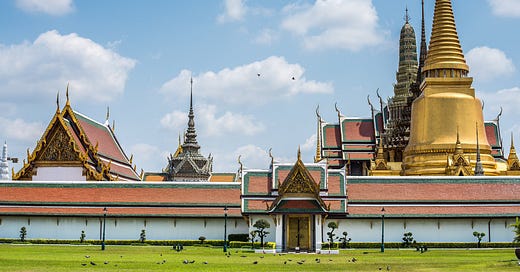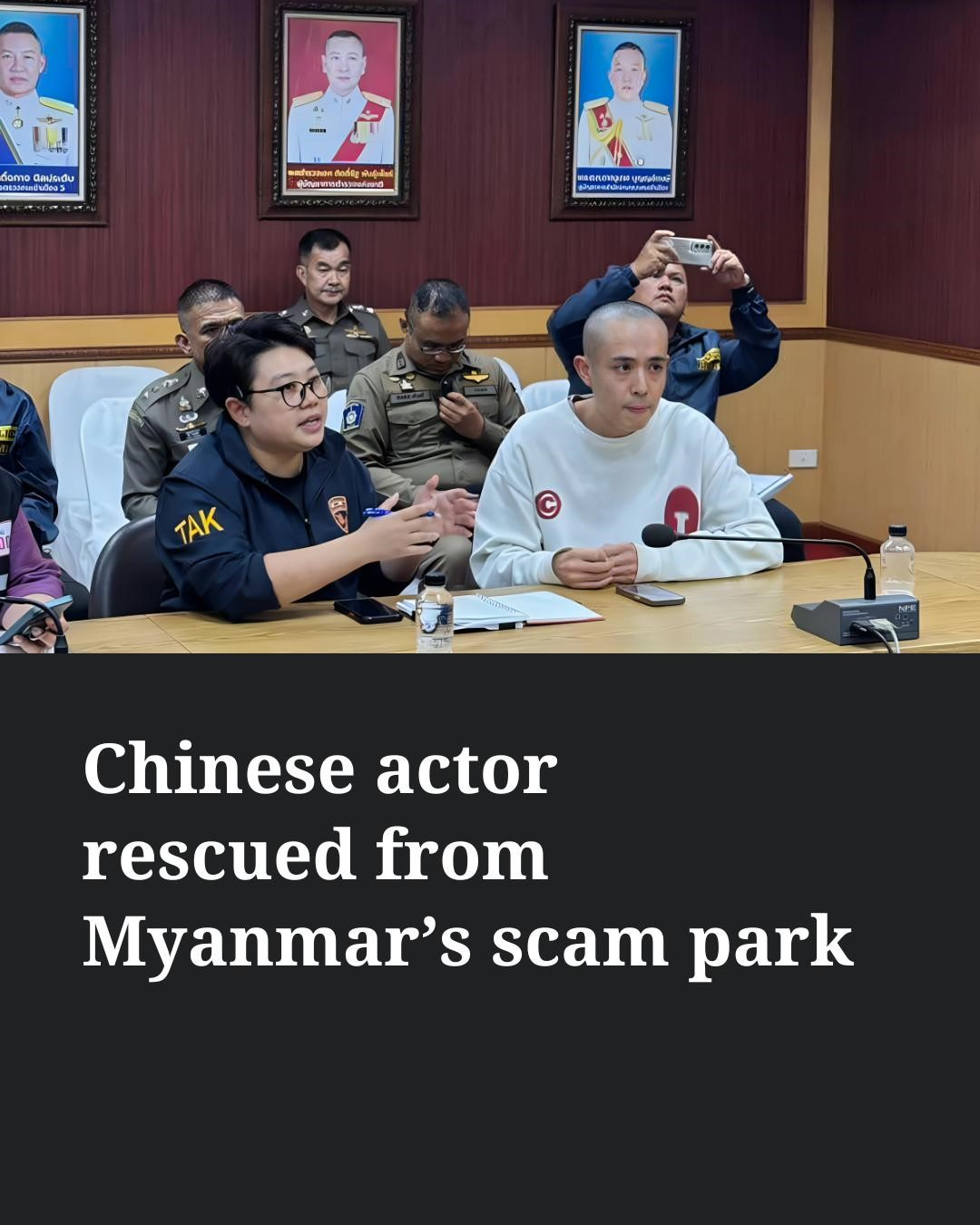'Thailand' is the cover story for cyber-scam human trafficking to SE Asia
Mainstream tourist destination sounds safe
The Grand Palace in Bangkok.
There are two simple points which cannot be made often enough about the human trafficking which ends up with the victims being forced to work in cyber-scam compounds in Southeast Asia.
The first is that the process always relies on human traffickers in the country of origin of the victims. These countries of origin could be pretty much anywhere: Asia, Africa, Latin America, Dubai.
No-one is getting onto a plane to Southeast Asia on the strength of an online job ad. The victims are being tricked in the first instance by people in the same country.
The second point is that the victims, usually young and well-educated, are not told that they are going to Cambodia or Myanmar. That sounds much too risky.
So they are often told that they are going to somewhere that sounds safer. Thailand is the most visited tourist destination in Southeast Asia, and borders Cambodia and Myanmar. It fits the bill perfectly.
Cyberscam compounds rake in billions of dollars per year by tricking online victims into making online payments using a wide range of sophisticated scams. Despite their use of technology and AI, they are still labour-intensive operations. Those who are forced to work in them have to keep going round the clock, and face brutal punishments if they fail to hit profit targets or try to escape.
The fact that Thailand is often the cover story captured media attention earlier this year when a Chinese actor, Wang Xing, flew to Bankgok for what he thought was an acting job. He ended up trapped in a cyber-scam compound in Myawaddy in Myanmar.
Thai police were able to rescue him after a few days. But for every high-profile case such as Wang Xing, there are hundreds which fall under the radar.
The United Nations Office on Drugs and Crime (UNODC) reported in April that numerous people rescued from scam sites in Southeast Asia, including Africans, were working in Dubai when they were recruited, with offers of IT or customer service jobs in Thailand.
UNODC notes the growing trend of Brazilians being trafficked into the compounds. Brazilian public awareness of the dangers has increased after the rescue of two young Brazilian men who were tricked by fake job ads and, just like Wang Xing, found themselves in Myawaddy.
These two young men had a much worse ordeal. Both were regularly beaten up by their captors, and one was detained in a dark room for a prolonged period.
In Malaysia, a mother appealed for help through the press in May to help find her daughter who has been trafficked to Cambodia. Her daughter ended up there after going on holiday to Thailand.
The conclusion is clear. If someone you don’t know is suggesting a holiday trip to Thailand, or offering a job there, you had better be sure you can verify who they are before accepting.






Southeast Asia has been my home away from home for two decades now... it’s heartbreaking to see, hear, and feel how much of what you write is now the norm.
Thank you for bringing awareness to a problem that most people in the West are unfamiliar, and or unconcerned, with. 🙏🏼🌎
About one of the sources regarding the eight Taiwanese tricked by the human trafficking “free Thailand tour” scam in Taiwan — it’s here https://ynews.page.link/Q6tRc
(Not in English but in traditional Chinese script — Google can translate with partial accuracy)